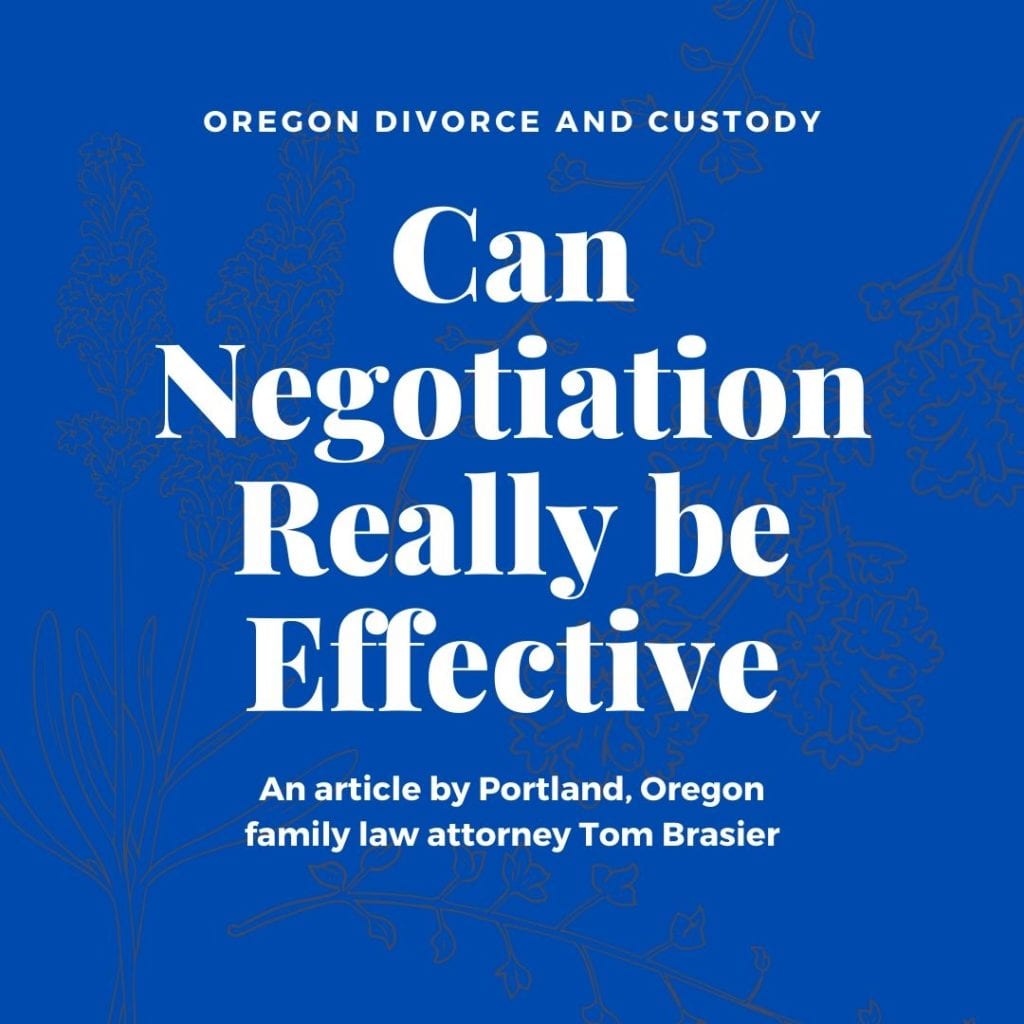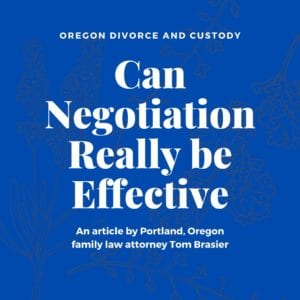
The title to this article is a question I receive somewhat frequently, and I find it professionally humorous. Don’t get me wrong, very little in a divorce case is humorous, it’s a devastating, traumatizing event in people’s lives. Don’t take my meaning incorrectly, I just mean the idea is humorous on a professional level to me. Every litigation attorney, at their heart, is a professional negotiator. It doesn’t matter the field of litigation, the goal is always, always, always to try and negotiate a deal that both people can walk away feeling Ok with. This is true for criminal law, family law, business law, personal injury, really any field where a trial looms at the end of a case Let me explain what I mean a little better.
I often get calls from clients who start off saying they want a trial lawyer. In my assessment, any case that ends in a trial is one that has failed the client. The reason for this is, no matter how good a trial lawyer you hire, trial is at best a roll of the dice. When you go to trial, you are effectively placing bets at a craps table. You can calculate some odds, have a decent idea of some probabilities, but the control is being placed entirely in the hands of your judge. Judges are often very good, and sometimes quite not so good, at their job. They are human beings with their own stories, their own biases, and their own ideas which very rarely match up with either of the litigants’ ideas of what is best for them or their children. The only people who win at trial ever are the divorce lawyers.
A family law attorney who specializes in taking cases to trial is someone who specializes in making money for themselves first, and satisfying their client’s needs second. Sure one party or the other will often walk out of court feeling like they got something close to what they wanted, but the cost benefit of what is gained versus what is lost from a trial is a poor ratio.
Don’t get me wrong, some cases have to go to trial. There are cases where a divorce settlement just isn’t possible. The parties might be too far apart on certain key issues, or the case might be too close for either person to be able to make large enough concessions to avoid court. The vast majority of cases however are best resolved by working through negotiation to reach an agreement without ever seeing a judge.
So back to the question of whether negotiation can help in divorce. The answer is a resounding yes. Negotiation should always be the focal point of your case. Now, that doesn’t necessarily mean negotiation in the sense of always taking a collaborative approach, where you ignore the pending trial and work to please everyone. Negotiation, at its core, is about creating leverage and using that to achieve the goals your client has. This can take many forms.
Sometimes, you gain leverage in a case with threats. Not outright threats, but by having a strong case. For instance, if you can convince the other side that you are going to win strongly at trial, that can put them in a position where they are willing to make larger concessions. Sometimes the best negotiation strategy is the old adage of catching more flies with honey. By taking a conciliatory approach with certain people, you can actually gain leverage in the negotiation process to help persuade them to give you what you want.
Each case is different, and family law is an emotionally charged field. The real job of your attorney is to get a sense of the priorities both people have, and develop a strategy to try and negotiate a deal that meets your primary goals without breaking the bank at a stressful, hate filled trial. The best attorneys are chameleons who can adapt negotiation strategies designed to each particular case, while meanwhile preparing for trial in the event settlement efforts fail.

Tom Brasier is an experienced family law attorney working throughout the Portland, Oregon area including SW Washington. Tom specializes in divorce and custody cases including uncontested divorce cases. You can reach him by contacting Brasier Law at 1 (503) 855-4777 or by using the contact form. The information contacted here is not meant to replace the advice of your attorney. Please contact them for information specific to your case.
